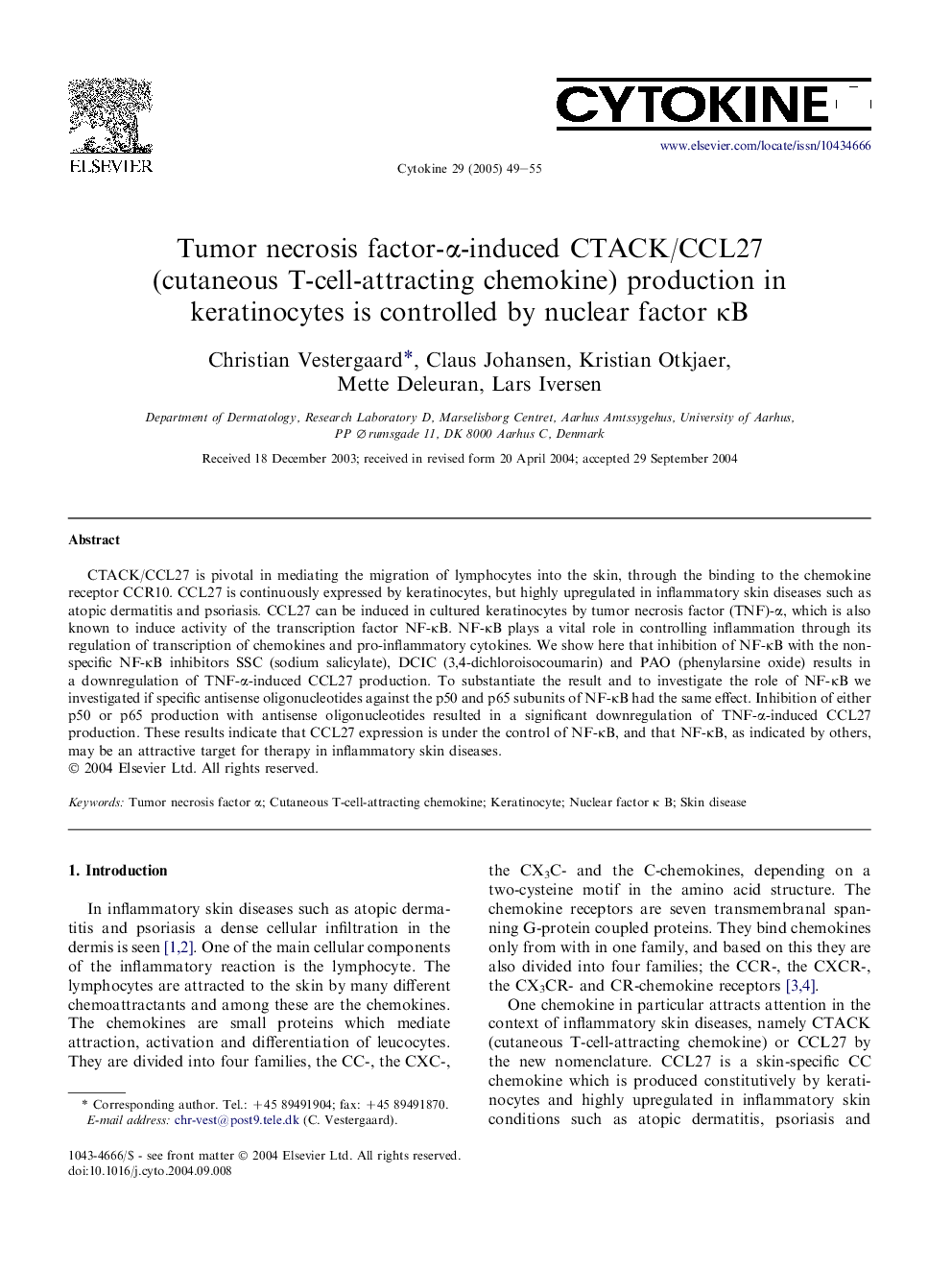| Article ID | Journal | Published Year | Pages | File Type |
|---|---|---|---|---|
| 9111036 | Cytokine | 2005 | 7 Pages |
Abstract
CTACK/CCL27 is pivotal in mediating the migration of lymphocytes into the skin, through the binding to the chemokine receptor CCR10. CCL27 is continuously expressed by keratinocytes, but highly upregulated in inflammatory skin diseases such as atopic dermatitis and psoriasis. CCL27 can be induced in cultured keratinocytes by tumor necrosis factor (TNF)-α, which is also known to induce activity of the transcription factor NF-κB. NF-κB plays a vital role in controlling inflammation through its regulation of transcription of chemokines and pro-inflammatory cytokines. We show here that inhibition of NF-κB with the non-specific NF-κB inhibitors SSC (sodium salicylate), DCIC (3,4-dichloroisocoumarin) and PAO (phenylarsine oxide) results in a downregulation of TNF-α-induced CCL27 production. To substantiate the result and to investigate the role of NF-κB we investigated if specific antisense oligonucleotides against the p50 and p65 subunits of NF-κB had the same effect. Inhibition of either p50 or p65 production with antisense oligonucleotides resulted in a significant downregulation of TNF-α-induced CCL27 production. These results indicate that CCL27 expression is under the control of NF-κB, and that NF-κB, as indicated by others, may be an attractive target for therapy in inflammatory skin diseases.
Related Topics
Life Sciences
Biochemistry, Genetics and Molecular Biology
Endocrinology
Authors
Christian Vestergaard, Claus Johansen, Kristian Otkjaer, Mette Deleuran, Lars Iversen,
